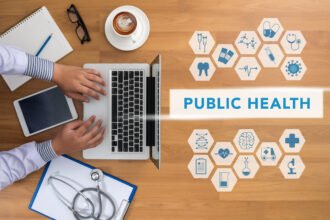Much of today’s foods are “ultraprocessed,” lead to obesity and its ultimate diseases such as diabetes, coronary artery disease, hypertension, many cancers and worsening of diseases such as osteoarthritis.
Much of today’s foods are “ultraprocessed,” lead to obesity and its ultimate diseases such as diabetes, coronary artery disease, hypertension, many cancers and worsening of diseases such as osteoarthritis.
Ultraprocessed foods originate from just a few grains, namely corn, wheat and soy but these then undergo extensive chemical and mechanical manipulation resulting in compounds that humans have never eaten before. Just look at the ingredients list on many store products and notice first how many ingredients are listed and second how few of them you recognize. Further they are concentrated as to sugars, salt and calories while deficient or totally lacking in the fiber, micronutrients and phytochemicals found in fresh or frozen grains, vegetables fruits and unadulterated meats and fish.
David Ludwig MD, PhD of Boston Children’s Hospital wrote a cogent article on ultraprocessed foods in the April 6, 2011 edition of the Journal of the American Medical Association and upon which the proceeding was based. He explains that there have been three major breakthroughs in food technology. The first came perhaps 2 million years ago with the development of stone tools and the use of fire for cooking. This allowed the human who did not have the running speed of large carnivores nor the digestive tract attributes of herbivores like cattle and sheep to expand his diet. The second big technology breakthrough was domestication of grains – agriculture. This led to civilization in the sense of larger more stable communities because domesticated grains such as wheat and corn greatly increased calories available and no longer required migration to hunt or gather. He makes the interesting observation that human stature dropped a few inches with this change because grains carry fewer micronutrients and protein per gram than do animal meats and nuts.
The industrial Revolution was the third breakthrough technology which led to refined flours and concentrated sugars along with grain-fed rather than grass fed cattle, sheep and hogs. Such animals are heavy with saturated fats although their protein content and ready availability has resulted in a return of greater stature in recent generations. More recently have come ultraprocessed foods.
These ultraprocessed foods are high in calories from sugars and fats – often hydrogenated and trans fats – yet low in micronutrients. They are found in supermarkets’ “middle aisles” as processed foods such as cereal with added sugar, cheese “spreads”, “macaroni and cheese,” soups high in salts and calories, “sticky buns,” and of course sugared sodas. And ultraprocessed foods are readily available in many fast food outlets where a muffin may have 400 calories with high contents of sugars and saturated fats. A bacon cheeseburger, large fries and large soda can contain well more than one half of a day’s caloric needs yet be deficient in nutrients.
Ludwig concludes with “the problem is the creation of a dietary pattern based on factory-made, durable, hyper-palatable, aggressively marketed, ready-to-eat or heat foodstuffs composed of inexpensive, highly processed ingredients and additives. Reducing the burden of obesity-related chronic disease requires a more appropriate use of technology that is guided by public health rather than short-term economic benefit.”
What can we do? We need to cut back on the ingestion of these ultraprocessed foods. But this will not be easy. For this to work I believe we need incentives. After all, that bacon cheese burger tastes good – sugar and fat are pleasing in our mouths. So we need more than just knowledge that we are eating well and thereby preventing future disease while improving our health. Knowledge is important because most people just do not realize the extent of the harm that comes from over consumption of ultraprocessed foods. With knowledge we can follow the advice of Pollan in his “In Defense of Food” to never buy a product that has more than five ingredients or has ingredients that we have never heard of or cannot pronounce. But knowledge alone is just not incentive enough to overcome the temptations.
Some thoughts: Government can help with how it subsidizes agriculture, incenting the growth of a broader array of crops and not marking the fattest meat as “prime.” And it can continue to insist that restaurants, especially fast food outlets, display calorie counts. Business can help with wellness programs that reduce the employee share of health insurance premiums in return for weight reduction or exercise programs. Insurance can offer incentives as well. Schools can offer only quality foods – good in itself but also a lesson in good dietary habits for our children in their formative years. And we each need to create our own incentives – as I typed this I also ate a chocolate chip cookie. I enjoyed it but have set myself a limit of one per day. My treat for finishing this blog post.








